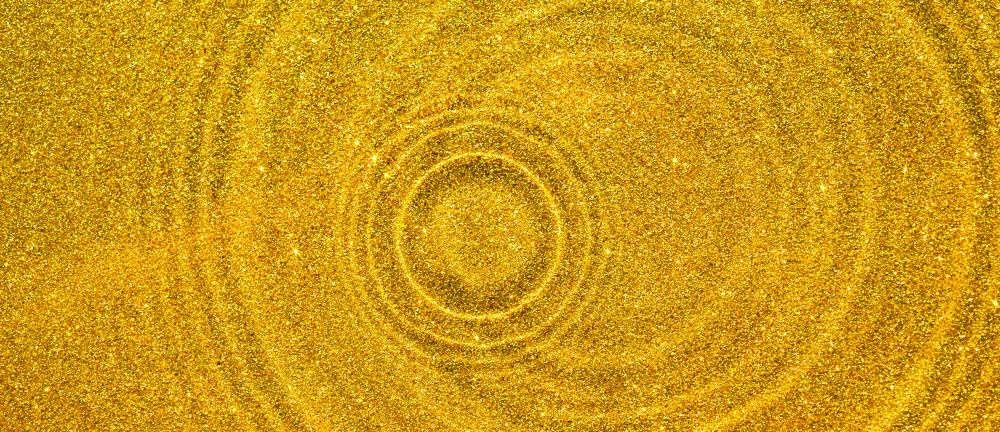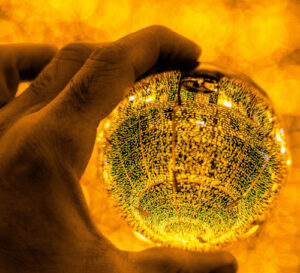
You don’t usually think of gold as something you can hear. It’s marketed in images, flash, shine, polished metal and perfect curves. But listen closely, and gold hums. In mines. In music. In the language of legacy and silence. In South Africa, where the ground gave up so much of it, gold has always had a frequency.
Not a metaphorical one, a literal one. In the hollows of Gauteng’s deepest shafts, there is a sound, steel groaning under pressure, the whir of ventilation fans, boots on dust, a drill chewing into rock. Gold starts in noise. Then comes the quiet. A kind of reverence, or exhaustion. Either way, it’s sacred.
The mines were once orchestras of industry. Rhythmic, relentless. A bassline of danger and hope. The migrant workers of the 1900s brought their own sound to the depths, songs to keep pace, to stay sane, to hold onto identity in the dark. These weren’t just harmonies, they were survival tools. Gumboot dancing was born underground, communicating across languages through stomps and slaps. You could hear it before you saw it.
Today, many of those shafts are silent. Abandoned. Flooded. But the echo remains, in archives, in old protest songs, in the way South African music still bends toward rhythm like it remembers something the surface forgot.
Mining towns shaped more than the economy. They shaped sound. Places like Welkom, Carletonville, and Springs became unlikely incubators for genres that would spill far beyond the veld. In taverns and backrooms, miners played records and later cassettes, mbaqanga, kwaito, house. And the metaphor bled naturally, spinning a vinyl record was a kind of mining. Digging for feeling. For escape.
Fast-forward to now, and the language hasn’t changed. We still talk about “dropping gold,” “pure fire,” “golden hits.” The shimmer moved from metal to metaphor, from bank vaults to beat drops. Even amapiano tracks often start with a build-up that mimics the descent, low, repetitive, waiting to burst.
There’s an idea in sound healing circles that gold vibrates at a frequency of abundance. It’s pseudoscience, sure, but strangely poetic. Because if you follow gold’s journey, from mine to refinery to jewellery store to pawn shop to studio to casino floor to vault to chain to chip, it always arrives with sound. Think about it, the ka-ching of a slot machine. The hush before a bet is called. The beat drop at a gig. Gold doesn’t just glitter, it announces.
For many South Africans, owning gold is aspirational. But hearing it? That’s democratic. You don’t need a trust fund to feel what a bassline does to your ribcage. You don’t need an inheritance to remix legacy. In a way, music gives back what mining took. It gives rhythm where silence was enforced. It gives joy where bodies broke. It turns absence into anthem.
 Gold and music share something else, they’re both extracted. The artist, like the miner, gives of themselves. And the system profits. Behind every amapiano banger is a producer who never got paid. Behind every polished melody, someone burnt out. The industry, like the earth, takes more than it gives.
Gold and music share something else, they’re both extracted. The artist, like the miner, gives of themselves. And the system profits. Behind every amapiano banger is a producer who never got paid. Behind every polished melody, someone burnt out. The industry, like the earth, takes more than it gives.
So we listen. But we should also ask, who’s profiting? Who owns the master tracks? Who holds the royalties? Because echo without justice is just reverb.
Somewhere in a casino in Johannesburg, a playlist loops. Familiar songs. Safe choices. But in the private lounges and online lobbies, new sounds creep in, local voices, unpredictable blends. A game starts. A bet is placed. Someone wins. Someone almost does. A victory sound plays. Designed, programmed, uplifting. Brief. That sound? It’s gold too. Manufactured emotion. A signal. A promise.
What happens when we stop mining the earth and start mining the archive? When samples become currency? When the beat itself is the inheritance?
Maybe the future of gold isn’t just in blockchain vaults or recycled jewellery. Maybe it’s in mixtapes, sound collages, field recordings. Maybe it’s in the untrained voice singing into a cracked mic at a taxi rank. Because gold isn’t just metal. It’s mood and memory. It’s a vibration. And if you listen closely, it’s everywhere.



